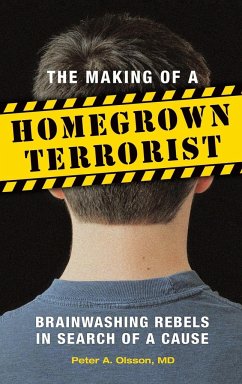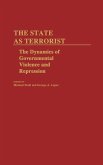What are the factors that lead some individuals to become terrorists? In this book, a psychiatrist and psychoanalyst examines case histories of terrorism and reveals how radicalized youths living next door can become dangerous homegrown terrorists. Religious zeal and passionate dogma can be powerful motivators for homegrown recruits of terrorist organizations. In this book, Peter A. Olsson, MD, applies his years of work with disordered personalities to the psychological understanding of why seemingly ordinary Americans turn into murderers of their countrymen. He identifies the psychodynamic patterns of the lives of those who become "homegrown terrorists" and commit acts of cold-blooded murder, examining 20 detailed case histories of individuals-often youths or young adults-to provide theoretical and practical understandings. The book focuses on individuals that include Timothy McVeigh; Ted Kaczynski, a.k.a. "The Unabomber"; the "Shoe-Bomber" Richard Reid; Colleen LaRose, a.k.a. "Jihad Jane"; Nidal Malik Hasan, an American-born, former U.S. Army officer who opened fire on American troops at Fort Hood, Killeen, TX, killing 13 and injuring more than 30; and Dzhokhar and Tamerlan Tzarnaev, the two brothers charged with placing pressure cooker bombs at the finish line area of the 2013 Boston Marathon. It also delves into topics such as distinguishing between "good charisma" in a youth versus "evil charisma" and recognizing the characteristics of a healthy group or leader versus those with unhealthy motivations-subject matter that will be of interest and importance to anyone from concerned citizens and parents to teachers and terrorism specialists.
Hinweis: Dieser Artikel kann nur an eine deutsche Lieferadresse ausgeliefert werden.
Hinweis: Dieser Artikel kann nur an eine deutsche Lieferadresse ausgeliefert werden.








